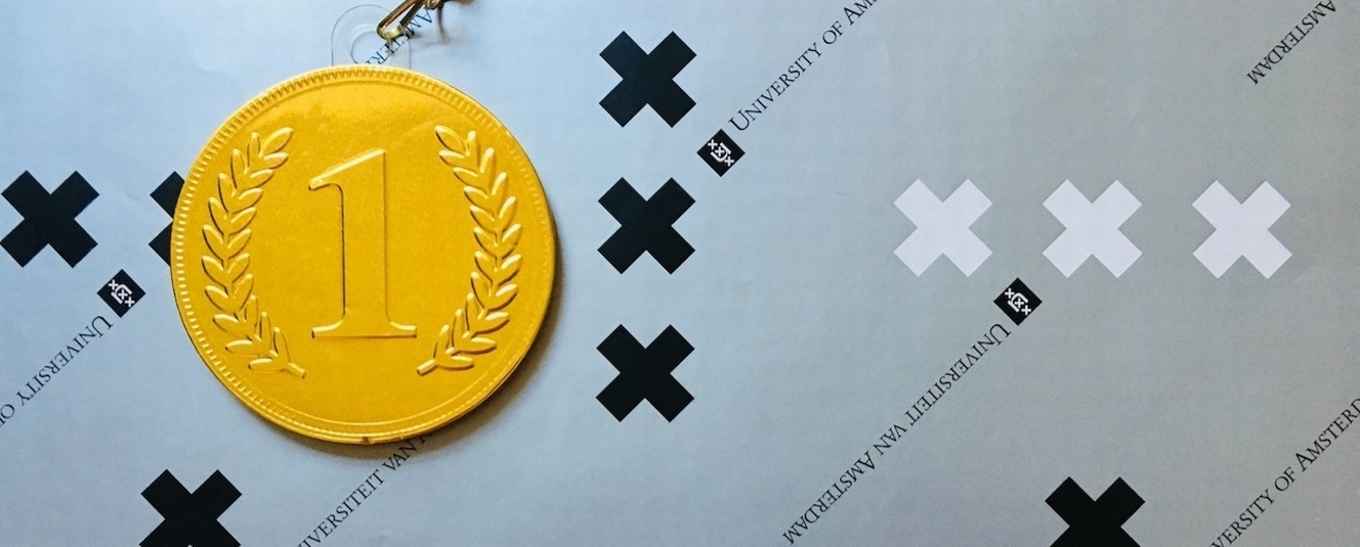Communication Science & Media Studies ranked 1st in the world in latest QS Rankings
28 February 2018

‘We’ve always put the quality of our teaching and research first. Over the past few years, we’ve been delighted to see our efforts reflected in a solid position in the rankings. This number 1 position is, of course, the icing on the cake. We are incredibly proud to have been able to put the UvA’s Communication Science department on the map’, says Martine van Selm, director of the College of Communication and professor in the Corporate Communication group.
‘The UvA’s department of Media Studies is also thrilled with the news’, says Rens Bod, department chair and professor of Computational and Digital Humanities. ‘This is a huge boost and a well-deserved recognition for the outstanding, creative work being carried out at Media Studies.’
At the forefront
‘Communication Science has always wanted to lead from the front when it comes to embracing educational innovations and adopting new research initiatives. Evaluations done by international review committees have shown time and again how valued we are for being an excellent institute. But our success is, of course, mainly thanks to our highly motivated and qualified lecturers and researchers’, says Van Selm.
The research and education carried out at Communication Science have scientific and practical relevance, are interdisciplinary and internationally oriented, and include both English and Dutch Bachelor’s, Master’s and Research Master’s programmes. The Amsterdam School of Communication Research (ASCoR) is the research institute of the department of Communication Science. Some of the themes explored within research and teaching include cyberbullying, influencers and brand communication, media and politics, the changing journalism landscape, robots and chatbots, gaming, augmented and virtual reality, personalised health communication, personalisation and privacy, organisations in the news, and stereotypes in the media.
Unparalleled scope
Both audiovisual and digital culture are focal points in Media Studies. ‘Our scope is unparalleled’, says Bod. ‘We have a rich variety of fields in both teaching and research, namely: film studies, journalism, new media and digital culture, archival studies, information studies, television studies, globalisation studies, digital humanities, digital heritage and cross-media culture. The people who lecture and conduct research in these fields work at the vanguard and have managed to establish strong teams that are active and visible in the international arena. We also focus on research-driven teaching from the outset of the Bachelor’s programme. In this way, we use education to involve students in research as quickly as possible. It is terrific to see this ranking confirm just how well we are doing. Our priority should now be to maintain this high level of quality.’
Media Studies is active within four of the UvA’s research schools: The Amsterdam School for Cultural Analysis (ASCA), the Institute for Logic, Language and Computation (ILLC), the Amsterdam School for Heritage, Memory and Material Culture (AHM), and the Amsterdam Center for Language and Communication (ACLC).
About the rankings
QS ranks subject areas on the basis of four criteria: employer reputation, academic reputation, citations and H-index. The latter criterion links the impact (number of citations) to the scope (number of publications) of a researcher’s work. In the university-wide QS World University Rankings released on 8 June 2017, the UvA is placed 58th.
QS ranks Communication Science and Media Studies as one subject area. At the UvA, Communication Science research is carried out at the Faculty of Social and Behavioural Sciences and Media Studies research at the Faculty of Humanities.
All subjects
Several of the UvA’s subject areas have a high ranking in the QS World University Rankings by Subject. Dentistry (joint UvA-VU) jumps to 4th spot (up from 8 last year) while other subjects listed in the top 20 include Linguistics (14), Psychology (17), Geography (14), Anthropology (14) and Sociology (14).